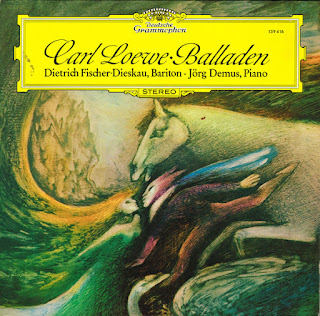 |
| My Cat Jeoffry listening to Leontyne Price. |
On the third day of Christmas we consider the Christmas record I have with Leontyne Price and Herbert von Karajan.
You can hear the whole record on YouTube. But it is not the same as on vinyl! That is my carol and I will continue to sing it. Listening to the vinyl really puts you back in an earlier time. This record came out in 1961.
It runs off the rails now and then as Christmas records do. The arrangement of "Angels We Have Heard on High" goes a little nuts with the "Gloria." Well, maybe someone had one too many Tom and Jerrys. 'Tis the season!
I happen to think "We Three Kings" is a kind of overrated carol.
But there my criticisms pretty much end. The arrangements are wonderful, elegant in that wonderful way of the 1950s and early '60s. "God Rest Ye Merry, Gentlemen" is a track I particularly love, with its witty accompaniment. You get "O Tannenbaum" with a verse or two in German because people expected it back then.
Conductor and diva must both have been happy with the record because in 1962 they teamed up again for "Tosca."
Herbert von Karajan gets a bad rap, you know? People would say he was bossy and a Nazi and vain and mean. Brooding about that just now I came up with this Guardian article that interviews a lot of people about him and most of them agree with me, that these allegations were unfair.
Who wouldn't, given this Christmas record?
Just listen to it!
















